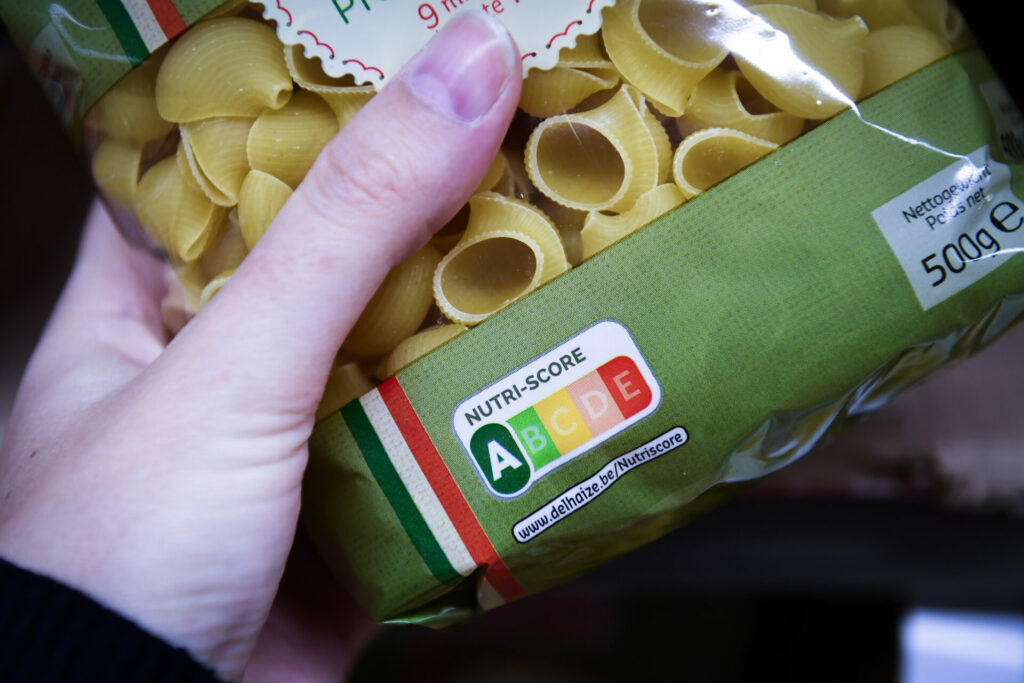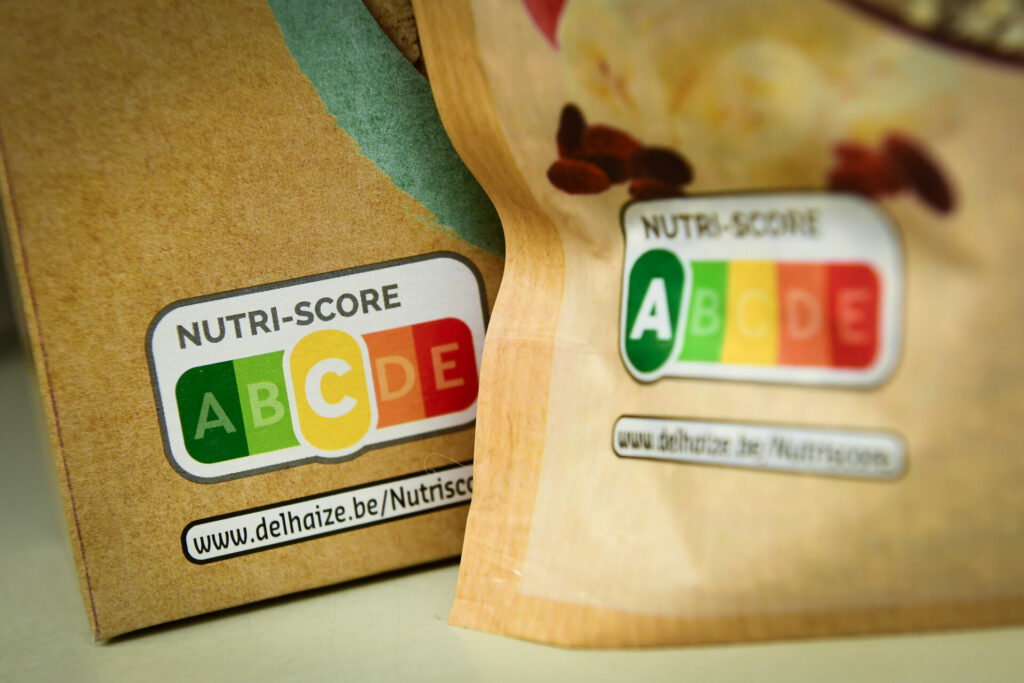Consumers in Belgium generally make healthier food choices when the Nutri-Score – a five-colour nutrition rating system – is shown on the product's packaging, a large-scale consumer survey by the Sciensano Health Institute shows.
The study, in which more than 3,000 adults in Belgium participated, examined the impact of the Nutri-Score logo on perceptions of nutritional quality, and on buyers' intentions in the presence and absence of nutrition and health claims on a variety of food products, such as breakfast cereals, fruit juices and dairy products.
The 'interpretative labelling system' developed in 2017 is currently used in seven European countries: Belgium, France, Spain, the Netherlands, Switzerland and Germany. The way in which a product's Nutri-Score is calculated changed this year, marking a step forward in the plan to implement EU-wide standardisation.

An example of a Nutri-Score label on pasta. Credit: Belga
The Nutri-Score is a points system for supermarket products which is based on content per 100 g (or 100 ml for liquids). Products are then classified from A to E, each letter with a corresponding colour. The intention is to inform consumers as clearly as possible about how healthy a product is.
The new calculations rank products more strictly on salt, sugar and fat content. Olive, rapeseed and walnut oils will therefore go up in nutritional value, while chocolate drinks, breakfast cereals and soft drinks containing sweeteners will receive a lower score. The changes affect 40% of products in the Belgian market.
The Sciensano study found that consumers' purchase intentions for healthier foods with Nutri-Score A and B were significantly higher when the Nutri-Score was on the label, regardless of the presence of nutrition and health claims.
In contrast, for less healthy products (with Nutri-Score D and E), the presence of the score led to lower perceptions of nutritional quality and reduced purchase intention among Belgian consumers. The score's influence was similar in the presence and absence of claims.
Mandatory labels
In addition to this study, a new food consumption survey (also conducted by Sciensano) highlights that the majority of Belgian consumers (66%) support mandatory labelling of foods with the Nutri-Score.
Additionally, about a quarter of Belgians say that the Nutri-Score "sometimes" influences their purchasing decisions, while a significant proportion say it "often" (17%) or "always" (4%) does.
These results highlight the crucial role of the Nutri-Score in helping consumers make healthier food choices, while emphasising the need for effective communication to maximise its impact on purchasing behaviour.
These findings will be discussed in the framework of the Belgian Presidency of the Council of the European Union addressing complementary front-of-pack nutrition labelling.

